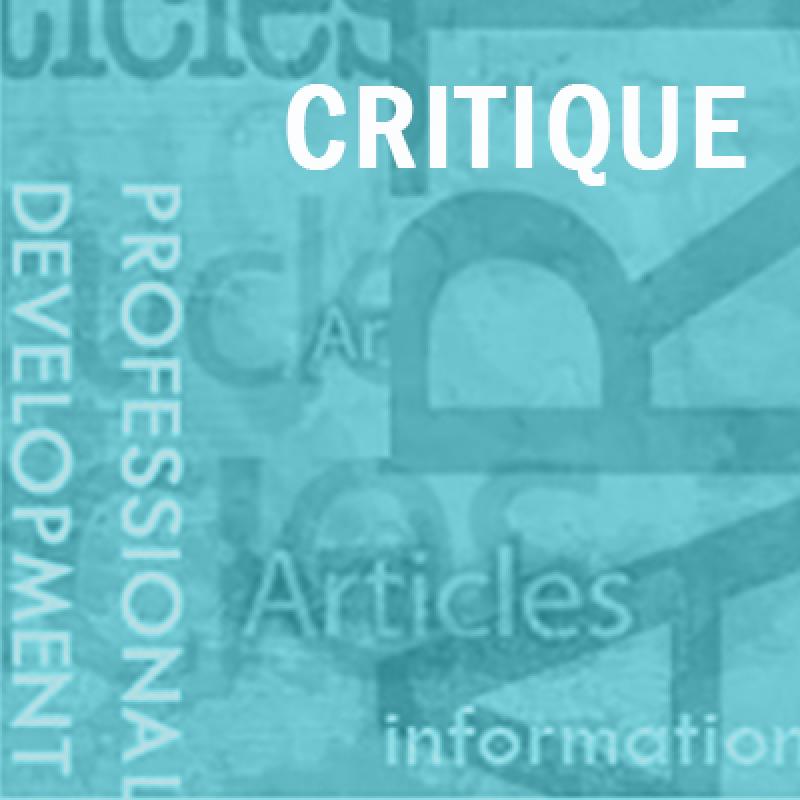The Mentorship Program is for artists beginning an art practice and also for experienced artists that want to explore growth opportunities with another experienced artist. Mentors can provide a wide array of options to consider and offer constructive critique, all with the permission of the Mentee.
The mentorship program begins in the first month of the year and can last for up to 12 months. Artists are paired in relation to goals. We try out best to work with time zones. It is a fun and rewarding benefit of being a SAQA artist.
** ALL SPOTS ARE NOW FULL!
The program will officially launch in mid-January. Mentors and mentees will receive details about their matches in early January.
If you have any questions, please contact mentorship@saqa.art.
About the Program
Mentorships will focus on assisting an artist to achieve specific goals or projects within a prearranged timeframe. Goals can range from guidance in artistic development and finding an artistic voice to more task-oriented goals such as composing an artist’s statement, completing a grant application, developing a record-keeping system, or preparing work for exhibition.
SAQA mentoring is a partnership in professional development. The SAQA Mentor is a friend, a trusted guide, one who shares knowledge and resources with a less experienced colleague. The Mentor’s responsibility is to provide guidance, support, and feedback. The Mentee’s responsibility is to identify goals and make reasonable progress towards attaining those goals.
Mentors are recruited and matched to applicants based on availability and areas of interest. A Mentor will initially review the application of a potential Mentee. If the Mentor accepts the applicant and the Mentee is amenable, both will be notified and begin the Mentorship process.
Since SAQA is an international organization with members located across the globe, most often mentees and mentors are not able to meet in person. Various alternative options will be suggested to the pairs and they can choose a method that will work for them.
Check out these resources for more details:
Video Conversation with Karol Kusmaul and Martha Wolfe
SAQA Mentorship Program meet-up (video recording)
Quilting Arts Daily Podcast with Deborah Boschert and Earamichia Brown
Amy Cavaness, mentee
Sometimes you don’t realize how badly you needed something until you have it. My experience being mentored through SAQA was transformative. Relatively late in life I discovered my passion for art quilting while still committed to a sewing-related business I’d built. Joining SAQA seemed like a good step. Applying to be mentored was a “what have I got to lose” move—I knew I’d learn a lot from just about any member of this organization, and it was FREE! What I didn’t know was how being chosen as a mentee by a world-famous artist (Caryl Bryer Fallert-Gentry) would change me. Having someone who is so successful see my potential really lifted me up and opened windows in my creativity. Early on, she helped me hone my aspirations to be able to do exactly what I really wanted to do—not doing everything I could, or should, or might.
One of her early suggestions was “maybe you should make your work bigger so you can get into more shows.” So I went a lot bigger on my next piece—and she asked me how it felt. It felt like going from being in a corner kind of afraid to show what I’d made to “OK, here I am and I have something to say!” What a great feeling!
Our mentoring relationship was done through photos and phone calls. Very simple and direct. She asked questions and made me think. She noticed things I didn’t. And helped me recognize the artist in me. A mentor doesn’t try to change your art. A mentor guides and answers questions about working as a professional art quilter. Who wouldn’t benefit from that? Thank you, SAQA, for offering this wonderful membership benefit!
June Robertson, mentee
I am currently five months into my mentorship program and have only good things to say about my experience. When I applied to the program I had been making textile art for several years but felt I needed help finding my artistic voice and future direction. I was very lucky to be partnered up with Catherine Timm who also lives in Canada but far enough away that we agreed to meet via Skype. That has worked very well and in addition Catherine offered to be available via e-mail or phone if I needed to bounce an idea off her or ask for advice between scheduled meetings.
From the beginning Catherine encouraged me to keep a sketchbook which I have now made a part of my (almost!) daily practice. She has given me many suggestions, always with the caveat that they are only "suggestions" but without fail they have been the pointers I have needed to move forward. An example would be the way she helped me understand how using colour effectively can make a profoundly marked difference to a piece. Previously I operated on a rather hit or miss approach which was neither efficient nor effective in many instances.
Catherine and I hit it off from the start and I am just so thankful to her for her generosity and kindness. She is an utter pleasure to work with and has helped me grow in confidence with every exchange that we have had.
I would recommend this program unreservedly to others who are looking for guidance or artistic development. The opportunity to have regular access to an established textile artist who is willing to give their time and expertise is one not to be missed. In return all that is required is a commitment to treat the process with respect and to undertake the work that is agreed between mentor and mentee. It's a fabulous opportunity and one that I will always be grateful I took advantage of!
Sharon Jaeger - mentee
Elaine is WONDERFUL and her answers to my questions are spot on. She has made me stop and consider different options and provided directions I had never considered. She has helped me venture out of my "safe spot", focus and grow from merely doing challenge pieces with my art quilt group. I am working on some original designs and I have become brave enough to show them..... Yes, I am making progress. I am sad to think that I may not always have Elaine to ask questions of as she has been my "go to" person for a few months now. I know she has a busy life, but always makes time to answer me.
The mentor program is like having a really good friend with so much experience - a place to go for all those nagging questions and receiving really great answers. Guidance is key, but learning and progressing toward your goals is right up there. Sometimes the goals are altered after receiving answers to key questions or you learn what questions to ask.....
Heidi Proffetty, mentee
Now entering the second quarter of this program and looking at the basic definition of mentoring, I feel 100% that my mentor has already set me on the right track to developing both professional and personal growth as a new artist. At the onset of the program we arranged a basis for communicating and due to distance mutually agreed that a once a month, 1 hour check in utilizing FaceTime would be appropriate. In addition, my mentor offered to be available by phone, in person, or by email, should questions arise. An excellent approach, because I know that my mentor, someone who's in my corner, is available when I need support.
After communication came goal setting. My mentor had me brainstorm and write down as many goals as a new artist might want to achieve. This is very subjective and each artist will have different goals. Important to note, that I did this with no coaching from my mentor and again a brainstorm approach. The next valuable step came from my mentor who with her experience reviewed my goals and my unique lifestyle, meaning the amount of time that I could feasibly dedicate to my art work. She then helped me establish both short and long term goals. Then from the short term goals together we narrowed down to which goals I would seek to accomplish in the current year -- 2015. Now, it was my turn as mentee to make those goals visible, write them down with due dates, and stick them up somewhere visible as a reminder for me to work to achieve these goals.
Personally, I am thrilled to be a part of such a fabulous program and as a new artist excited for my art future. Had it not been for this program it would have been a struggle for me to figure out how even to begin to establish myself as a fiber artist.
Barbara Aiken, mentee
The mentoring program has been the best thing that has happened to me in a long while. I can't believe I have been so blessed with this experience. I am working with Pam Druhen. We seem to be the perfect match. I am so grateful for her positive guidance. We meet monthly and converse as needed through email. The goals we have set so far are realistic, and we are building in small steps. I just can't believe that someone of Pam's caliber would be a mentor for free. The mentoring program is one is the best experiences that SAQA has offered, and I am so happy that I responded to the offering. I certainly needed a creative "jump start," and Pam is a great mentor.
Susan Polansky, mentor
I wish the mentoring program had been around a number of years ago! I would have loved to soak up lessons from someone else’s experience. But that was then and this is now. I signed on to the mentoring program because I know there are others out there developing their craft as I had been, looking for encouragement or guidance.
My experience with this program is different than I thought it would be, as my mentee is tapping into areas of my knowledge that I hadn’t even thought of as strengths. I really like forming questions that push her creative ideas and get her to think along different lines than she is used to. Breaking down the steps of how I do my own work in order to offer insight has made me think more about communicating and developing ideas. It’s exciting to open up doors and see where they lead.
Pam Druhen, mentor
The mentorship program has been a win win for me. I believe the key is taking the time to build a good trust relationship with your mentee. It is easy to read a profile and see what a person is hoping to gain, but most of what a mentee would like to achieve is gained over time, not from one or two meetings. Both of us have to be flexible in what we expect to gain, where we expect to go and how we are going to get there. It is really gratifying to see a mentee grow. It is exciting to see her reach into herself and push away self-imposed boundaries. I think that at this point in our relationship I can say that she is on track to meet many of her goals.
Flexibility plays a main role in mentorship. We both have to be willing think and work outside the box. I’m looking forward to the day we look back to the beginning and talk about the next set of goals, and I’m confident that the time Barbara has invested in this program will pay a huge dividend in her future.



